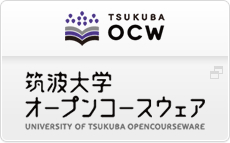Videos in advance 9th Dec “Open English Seminar in Nuclear Emergency”
We received a message from our lecturer Prof. Thomas Hinton, 9th Dec. Open English Seminar in Nuclear Emergency. Watching the videos below in advance will give you deeper understanding for the lecture.
* For registration, please send an email to the email address below with your “name”, “affiliation”, “contact address”, and “the number of participants”.
enep#@#ied.tsukuba.ac.jp
(Remove “#” from the above e-mail address before sending mail)
***** ***** ***** ***** ***** ***** ***** ***** *****
I will be visiting you this Friday (9 December) to give three radioecology (RE) lectures. All three lectures concern the environmental effects aspects of RE.
The first lecture (“/On the Evolution of Radioecology—and Why We Lost Ecology along the Way/”) is a history of radioecology, beginning in the early 1950s. I think you will be surprised to learn how RE helped
advance the more general discipline of ecology. I will show you that
in many ways, RE-effects research was more “advanced” in the mid-1960s than it is now. To understand why, it is important to review your basic ecological concepts (i.e. what is the differences between individuals, populations, communities and ecosystems?).
I recommend that you watch two short YOUTUBE videos before my lecture.
The videos do an excellent job of presenting population and community ecology. I think you will enjoy them. I apologize, they are both in English, and the speaker talks fast. When the YOUTUBE video uploads, you can turn the speed down, and also add subtitles under the “settings” tab (lower right of screen). These two things will perhaps help. Here are the links to the two videos:
·Population ecology; 12 minutes:
·Community ecology; 13 minutes:
My second lecture is titled: “/Challenges and Controversies of Protecting the Environment from Radiation/”. It will highlight two important aspects of radiation that make it unique among all other contaminants. These two aspects have impacted the development of RE as a science and complicate the interpretation of many current radiation–effects studies derived from field research. You will see that there are some fundamental differences in how risk analyses are conducted for humans versus the environment.
My last lecture is titled: “/Chernobyl, Environmental Effects, and a Split in the Radioecology Science/”. I will present the findings from the Chernobyl Forum, a UN sponsored committee that produced a summary report about the environmental effects of Chernobyl in 2006. The conclusions of this report produced the exact opposite response that the UN had hoped for. I will tell you what those controversial conclusions are, and how they have caused a split, or dichotomy, in the radioecology community. Here is a link to a BBC news article that I recommend you read before my talk. The news article is about the dichotomy in RE that I mentioned above.
http://www.bbc.com/earth/story/20160421-the-chernobyl-exclusion-zone-is-arguably-a-nature-reserve
And for something extra (not required…but worth the time), I encourage you to look at this short (4.5 minutes) YOUTUBE video on “Trophic cascades” and find out how wolves have caused rivers to change their course in Yellowstone National Park! This video shows how interconnected ecosystems are….and important thing to remember when you study radioecology.
(Trophic cascade: 4.5 minutes: https://www.youtube.com/watch?v=ysa5OBhXz-Q )
Lastly, I would like to tell you that my colleague, Jim Beasley, has an interesting TED talk. Jim and I trapped wolves together in Chernobyl and attached special GPS-dosimeter collars to the animals. The collars give us information on the animals’ location and on the external dose rate that the animals are getting. His YOUTUBE video talks about his expectations of what it would be like when he first went to Chernobyl…. and how his perceptions changed after doing research there.
I think you will find the talk interesting.
Here is the link to Jim’s TEDx talk on ecosystem resilience and Chernobyl; 15 minutes:
I hope you enjoy these videos and the news article. They are relevant to my lectures on Friday.







